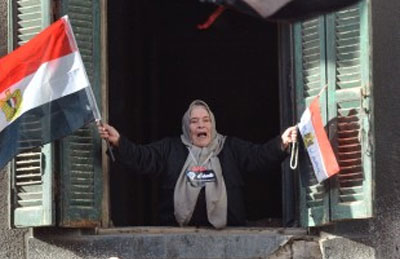
Investment recovering in Arab Spring economies
, November 27, 2012
By Andrew Torchia
A year and a half after Arab Spring uprisings erupted across much of the Mena region, countries affected by the unrest are again starting to attract foreign capital for securities portfolios and for direct investment in factories and property.
The process is hesitant and incomplete, with economic conditions still grim in many countries. Egypt, for example, is wrestling with a balance of payments deficit that may cause a depreciation of its currency and is forcing Cairo to seek a $4.8 billion loan from the International Monetary Fund (IMF).
But in some countries - Bahrain, Egypt, Libya, Morocco, Tunisia and Yemen - there are signs that investors feel that sufficient political stability has returned for them to begin looking for business opportunities.
When two real estate developers from the UAE announced a big project in Egypt last month, it was more than a boost to the country's property market; it was a sign of a revival of cross-border investment in the region.
Al-Futtaim Group and Emaar Properties said they had reached a preliminary agreement to spend about 5 billion Egyptian pounds ($820 million) on building the "Cairo Gate" complex off the Cairo-Alexandria desert highway.
The 65-hectare complex would be built around a shopping mall and include an office park, a luxury hotel, schools, medical facilities and residential space.
"There's a good amount of interest in investing in North Africa," said Adnan Ahmed Yousif, chief executive of Bahrain's Al Baraka Banking Group, adding that the interest is not only in traditional sectors such as banking and real estate.
New areas of interest include infrastructure, consumer industries and even entertainment, said Yousif, who also heads regional banking body the Union of Arab Banks while speaking at the recent Reuters Middle East Investment Summi
The Arab Spring took a heavy toll of investment in the worst-hit countries. Egypt's stock market was down about 50 per cent last year and the country suffered a $483 million outflow of foreign direct investment.
That compared with a $6.39 billion inflow in 2010, according to the Arab Investment & Export Credit Guarantee Corp.
The latest balance of payments figures show that the picture is improving. Egypt's net portfolio investment outflows slowed to $456 million in the second quarter of this year, from $1.58 billion a year earlier, central bank data shows.
That has permitted a 56 per cent leap by Egypt's stock index so far this year, making Cairo one of the world's best-performing markets.
Sherif Salem, portfolio manager at Abu Dhabi's Invest AD, said that Egypt's rally had stalled in the past few weeks as investors realised the size of the country's economic challenges, including the need to cut the state budget deficit with politically difficult reductions in subsidies.
"We haven't reached that point where you can say if Egypt has turned the corner or not - there's clearly a lot of potential, but the potential is not yet reality," he said.
However, other Egyptian asset classes are also showing more strength. Consultants Jones Lang LaSalle said that the election in June of President Mohamed Mursi has provided a boost across a number of sectors.
"With a return to a more politically stable environment, under a business-friendly government, we are seeing increased investor and consumer confidence," it said in an October report.
Foreign direct investment is recovering in many countries. Tunisia attracted 1.48 billion dinars ($931 million) in the first nine months of 2012, up 27 percent from a year ago, its investment promotion agency said.
The total was down only one per cent from the same period of 2010, before the Arab Spring. Masood Ahmed, the director of the IMF's Middle East and Central Asia Department, said that some investors expect the Arab Spring would strengthen economies in the longer term as new, democratic
governments worked harder to create jobs and reduce poverty.
"These investors are conscious of the fact that medium-term prospects for the region remain very favourable," he said.
One of the biggest developments in the wake of the Arab Spring is the emergence of Gulf states as top investors in North Africa, partially offsetting a drop in Western investment because of economic woes in Europe and the United States.
High oil prices - lifted in part by political tensions in the region - will help the Middle East's oil exporters to post a combined current account surplus of about $400 billion this year, close to a record high, the IMF estimates.
Some of that is now being recycled to the Arab Spring states in the form of aid and investment. Many big investments are by state-backed Gulf companies. But Al Baraka's Yousif said there was also growing interest among cash-rich private companies in the Gulf.
For example, Saudi food group Savola bought out two Egyptian firms late last year and Saudi-based private equity firm Amwal Alkhaleej has said it is eyeing investment in Egypt. "The private sector in the Gulf has become quite big and powerful. It is therefore looking overseas," Yousif said.-Reuters







